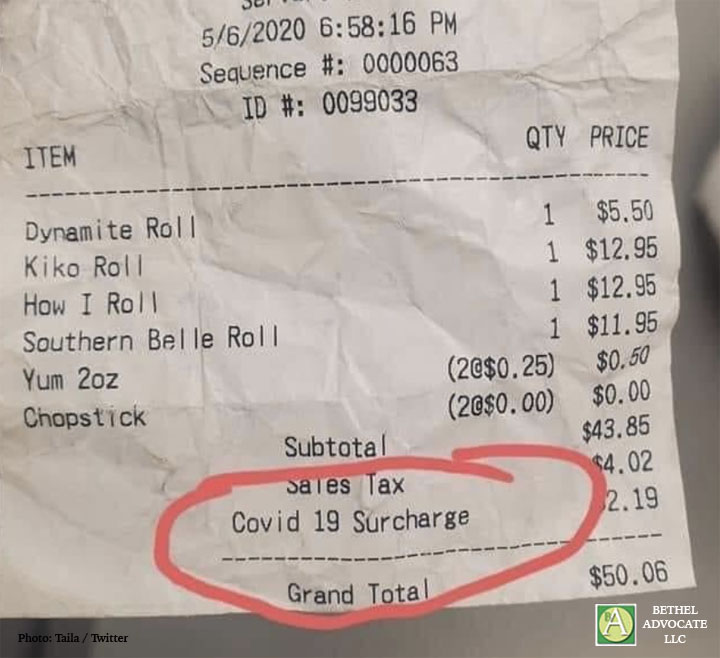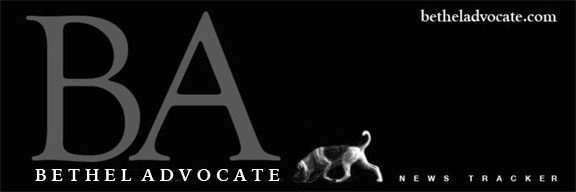
Report by Paula Antolini, September 16, 2020, 6:17PM EDT

‘Scuse me … what? A covid surcharge…? tweeted a person on Twitter, who posted her restaurant receipt on Twitter (shown above) and received a lot of comments in agreement.
“I will happily tip extra to my server but you aren’t slapping a made up charge unless you tell me first. My pay has been cut though I’ve been able to work. Should I charge all my clients an extra fee to cover my bills at home? said another Twitter user .
“The establishment should tell you previous to ordering. It comes off ‘sneaky’ and then they stand to loose customers because they were not forthright.” tweeted another person.
“If I ever see this on a bill I will not pay it. Complete [BS]. I’m tryin to recoup too. Who am I suppose to bill ??? Is this even legal ?”tweeted another user.
Well it IS legal in NYC. The NYC Council has passed a law “Allowing food service establishments to charge a “COVID-19 recovery charge.”
The law reads, “Restaurants have struggled since the onset of COVID-19 and the associated in-person dining restrictions went into effect, forcing many out of business with many others barely surviving. However, current rules prohibit restaurants from charging any fees other than the listed price of food and drink, even if such surcharge is clearly disclosed. This bill would help restaurants by temporarily allowing them to add a “COVID-19 Recovery Charge” of up to 10% of a customer’s total bill. The menu and bill would need to clearly disclose this charge. This surcharge would be permitted until 90 days after full indoor dining is once again permitted.“
Is Connecticut next?
The Connecticut State Department of Consumer Protection presently has laws concerning credit card surcharges.
“Under Connecticut law, a business may not charge a customer a surcharge for choosing one payment type (usually credit card) over another payment type (usually cash). However, the law allows a business to offer a discount to induce a customer to use one type of payment (e.g., cash) over another type of payment (e.g., credit card). Many customers often believe that not receiving the discount is akin to adding a surcharge, however as long as the final accounting of the transaction on the receipt ultimately shows a discount, it complies with Connecticut law.” (See Connecticut General Statutes § 42-133ff.)
###
